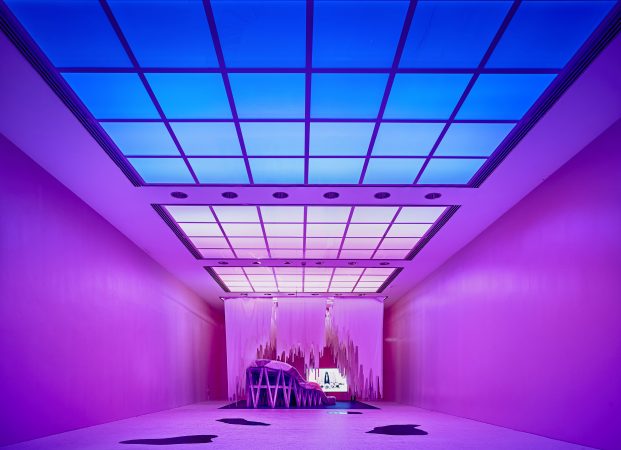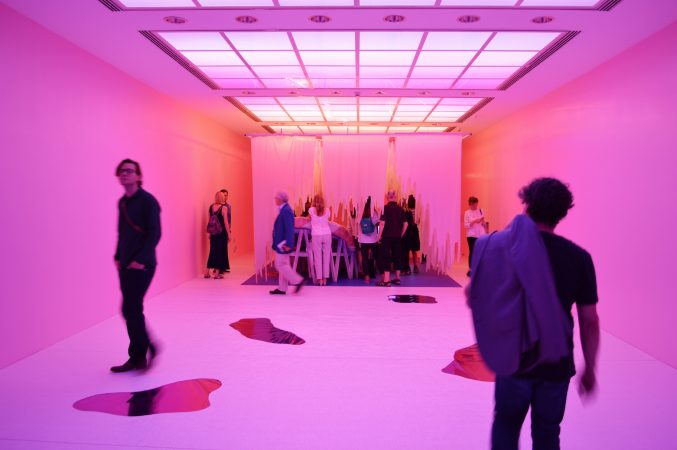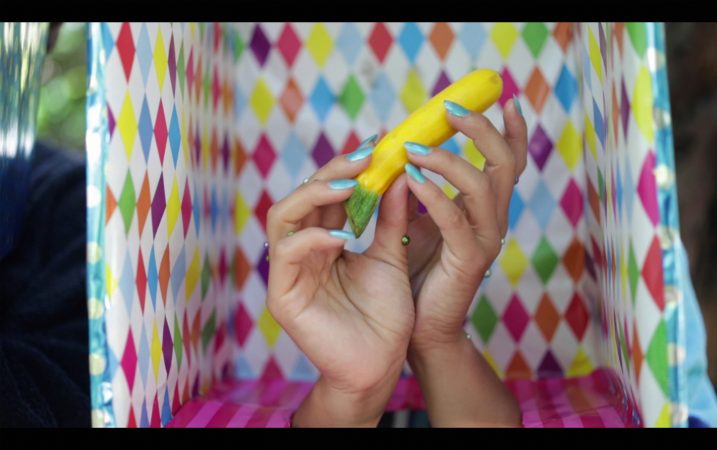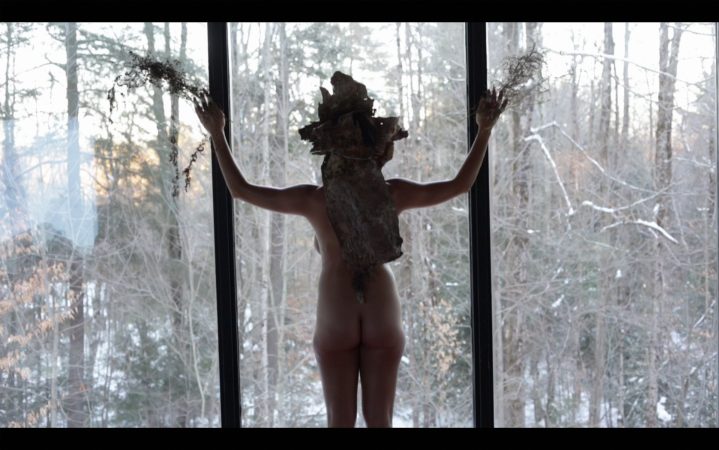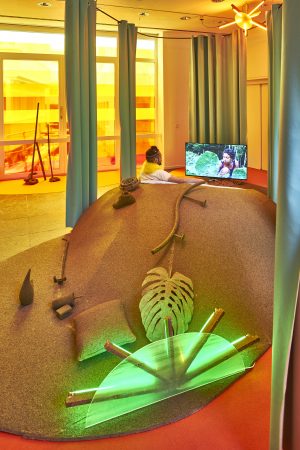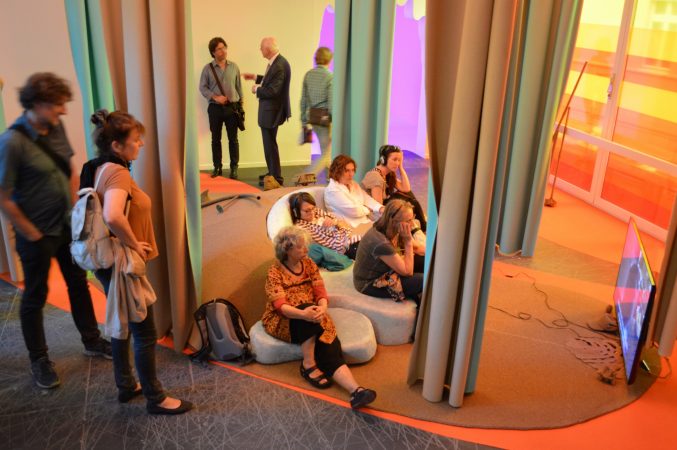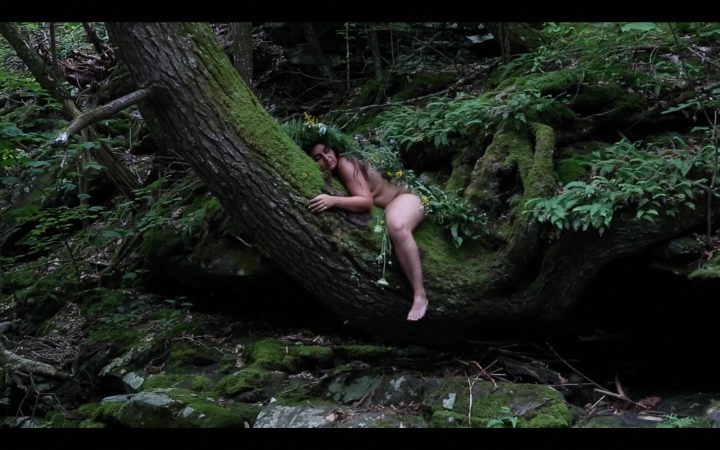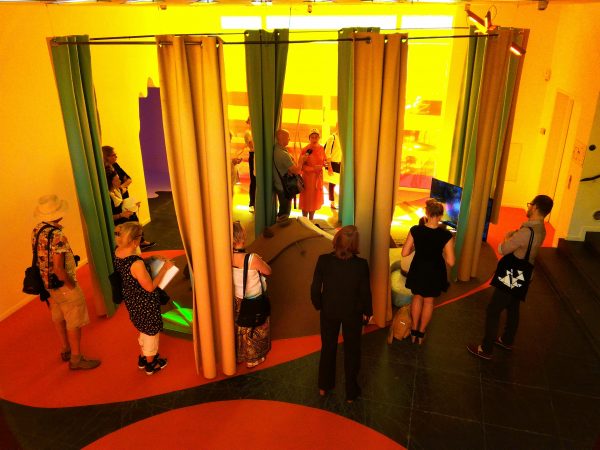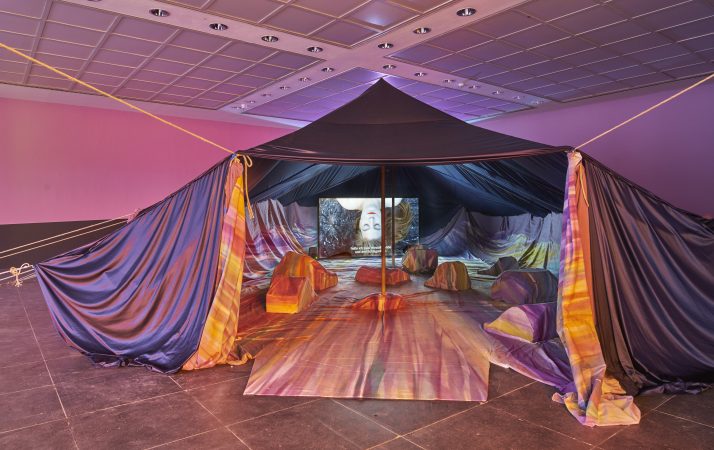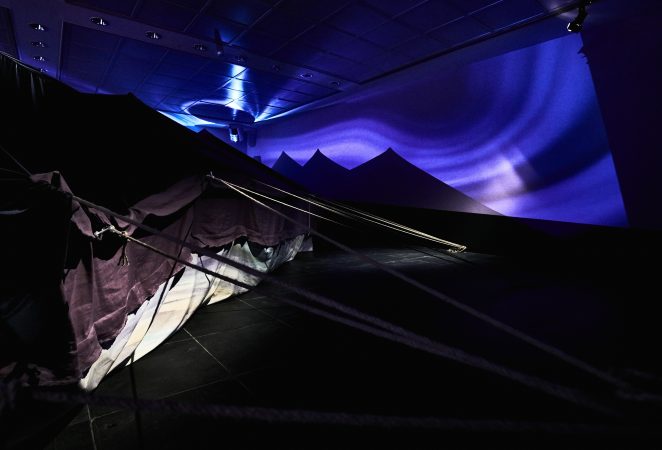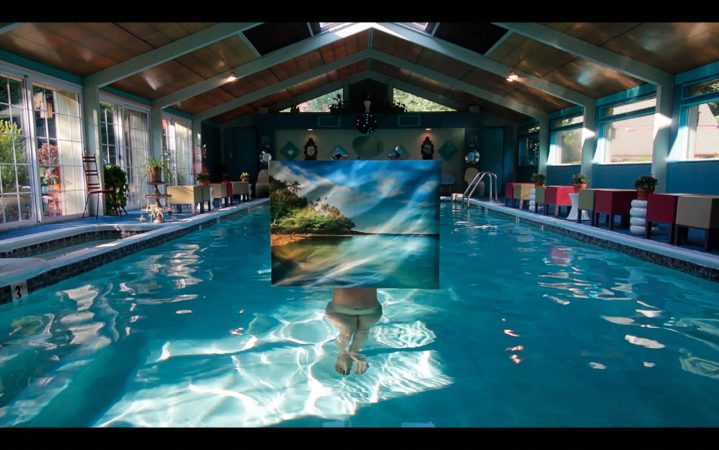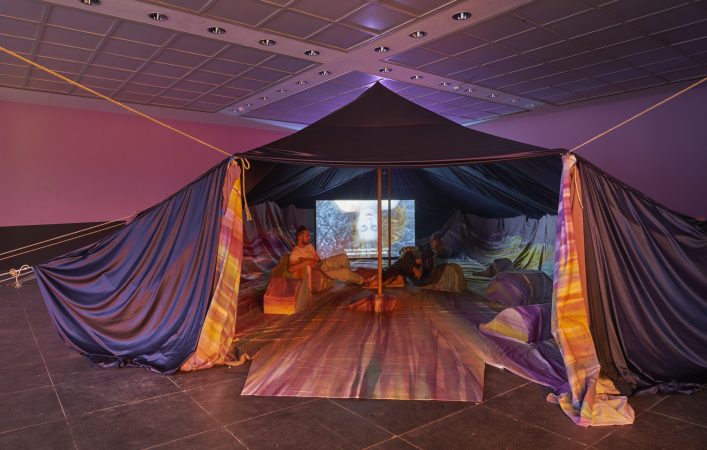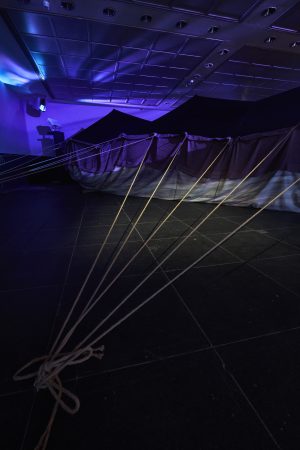Night Soil Trilogy
The human experience of being one with nature is a deep sensation, which lies beyond words. Making it somehow tangible has always been one of the greatest concerns of philosophy, religion, myth, and art. Poetry is able to provide a language, which makes the invisible describable and histories experienceable.
Melanie Bonajo’s work, especially the experimental, semi-fictional documentary film trilogy Night Soil, addresses the necessity of developing a new ethics for the Anthropocene era. Our destructive influence on the environment, the myth of eternal growth, and the belief in the technological control of nature have all led to radical transformations of the planet. There is a need to initiate a cultural change, to investigate different ways of living, and to reconsider ethics as well as the idea of human so that individuals can understand themselves as part of a whole and thus can assume responsibility for their fellow beings.
The Night Soil trilogy consists of three independent parts: Fake Paradise (2014), Economy of Love (2015), and Nocturnal Gardening (2016). Based on her own lived experiences, Melanie Bonajo documents communities that stand for alternative social models. The artist searched the entire globe for groups that have opted for liberating and partly illegal living practices in an attempt to live outside of common social models and the capitalist value system. In the films, Bonajo portrays people in search of other methods of living, new rituals for a transformed relationship to nature and community as well as a different approach to bodies and socially defined gender roles: liberated community formation, emancipated conceptions of sexuality and the body, alternative methods of food production, a more sustainable and conscientious approach to the natural environment.
The primarily female protagonists belong to the generation of the artist, that in the age of digital networking, explores methods of living that imply deceleration and lead the individual back to physical presence, real communities, and new ways of connecting with the natural environment. The Night Soil trilogy is less a plea for escapist lifestyles than it is a sensitive portrait of individuals who have adopted a different approach to existence, while offering insight into their alternative methods of thinking and acting. The young women stand for a radically different kind of ethical thought and an oppositional approach towards the lifestyles produced by our globalized, digitalized, and networked world.
In her videos the artist lets the female protagonists speak for themselves about their individual worldviews. In the process, Bonajo creates a space for associative and playful portrayals, which Bonajo sees as her artistic interpretation. It’s her goal to have images become a radical form of changing our perception.
For each of the three films, Melanie Bonajo collaborated with Théo Demans and Clemence Seilles to produce spatial extensions, which pick up on elements from the films and produce materially diverse, colour and light-intensive landscapes for the viewers to linger in with full sensual immersion and bodily presence.
NIGHT SOIL – #1 FAKE PARADISE, 2014
The first part, Fake Paradise developed against the backdrop of the artist’s interest in the influence of “alternate states of consciousness” on social contexts. Melanie Bonajo follows the movement for the legalization of the hallucinogenic drug Ayahuasca – a psychedelic herbal brew used in religious ceremonies by various ethnic groups in the Amazon in order to enter a trance. Given how LSD influenced the rise of countercultures in the sixties, like the anti-war and environmentalist movements, the sexual revolution, feminism, LGBT culture, and techno-utopias, Bonajo investigates the transformative power of psychedelic experiences and the subsequent countercultures that emerge from it.
Ayahuasca intensifies the feeling of a trance, the dissolution of one’s own body, of merging with nature and the world spirit. Transcendental practices have been observed in all early cultures, often celebrating the unity of the natural, the sensuous, and the mental in collective rites. Consciousness-expanding substances have always influenced forms of community and interpersonal relations. They have a long tradition within physical and mental healing processes as well as alternative medicinal practices. In rational Western cultures, these existential worlds of experience have been lost, and the substances, which would enable them have likewise been prohibited. The film points towards the growing movement in Western cultures of individuals who want immerse in existential experiences in order to initiate deep and transformative changes of the self.
The tent recalls nomadic dwellings where shamanic rituals are celebrated. Their cultic and medicinal acts serve as mediators to the spirit world and are practiced for the benefit of the community. For the exhibition Melanie Bonajo has developed with Théo Demans and Clemence Seilles an installation that conjures a nocturnal landscape.
NIGHT SOIL – #2 ECONOMY OF LOVE, 2015
Economy of Love investigates the relationship between body and mind, sensuous and spiritual longings, while reflecting on the human aspiration of figuring out the meaning of life.
The second film in the trilogy presents a group of young women, amateur sex workers in Brooklyn (New York), who conceive of their practices as a way of regaining power and influence within both the patriarchal social order and sex practices and notions of desire dominated by men. Their practice is based on the insight that sexuality is not obscene but rather a means of self-empowerment: a positive, liberating, and equally shared experience in which bodily sensuality has the same spiritual value as the fulfilment of more mental passions. As a liberating activist utopia, the group appeals to the embodiment of mythological Sumerian traditions of sacred prostitution in which the actions of the temple prostitute bore religious significance. Against the backdrop of a dominantly capitalist information society where images of sexuality are always available, these women attempt to reformulate sexual conventions and the idea of intimacy. Melanie Bonajo achieves a playful, life-affirming portrait of women, who aspire to an idea of sensuality understood as unity of body and soul, a sacred act that fosters a rethinking of socially established gender roles.
NIGHT SOIL – #3 NOCTURNAL GARDENING, 2016
Nocturnal Gardening is the most recent film in the Night Soil trilogy. Through four episodes, the film shows how communities form and define themselves in terms of a collective goal: namely, applying anti-colonial and anti-capitalist ethics to the cultivation of land in a solidary effort to counteract the inequalities and dangers of contemporary food production for both humans and animals. The work portrays various groups who, based on their alternative value systems and their holistic, sensitive view of the world, test out counter-models to industrial food production. The protagonists develop different self-organized land use and animal farming models that operate outside of the common economic standards and are based in the ideal of a sustainable and conscientious relationship with nature, plants, and animals. On a related note, the film also addresses the land rights of indigenous populations and the subsequent discrimination against them practiced by the present food industry.
The installation makes reference to the five suns of Aztec mythology, which correspond to the world’s various eras. In each era, one god took on the function of the sun, while each reign ended with a catastrophe. The installation accordingly presents a stylized post-apocalyptic landscape.

